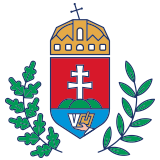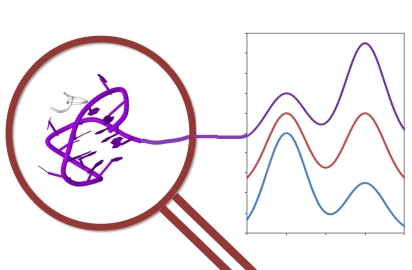Über uns
Über uns
The group studies the structure and stability of biologically relevant macromolecules. In order to obtain detailed structural information, several spectroscopic techniques are used. The group has a quite unique technique, which allows to probe samples under pressure, providing the possibility to determine volumetric parameters, which could not be determined otherwise.
The group studied various types of proteins and protein aggregates, but recently our research interest turned to noncanonical nucleic acid structures.
Forschungsbereiche
Currently, the interest of the group focuses on noncanonical nucleic acid structures, namely on G-quadruplexes (GQ). These are formed by guanine-rich regions of the genome. Their importance for medical research became obvious, when their appearance was observed in the telomere region, and in several oncogene and proto-oncogene regions. Formation of GQs in the telomere region inhibits the telomerase activity; while in the oncogene and proto-oncogene regions both positive and negative effects were observed. Due to these effects they became promising targets for cancer therapy.
Several organic compounds were developed in order to stabilize the folded GQ structures, although they did not succeed in qualifying for clinical application until now.
We investigated whether G-quadruplexes can also be formed in the viral genome. We have proven that three short sequences from the genome of the hepatitis-B virus really form G-quadrupex structure. We have characterized the stability of these G-quadruplex forms and determined their thermodynamic and volumetric parameters. Also, their stabilization was achieved by using such ligands which were developed originally during the cancer research.
Besides the nucleic acid research, the group has a long experience in characterizing the stability and function of various proteins, and protein aggregates. Infrared spectroscopy has been proven to be suitable for the detection of both the secondary and tertiary structure and of the intermolecular interactions.

